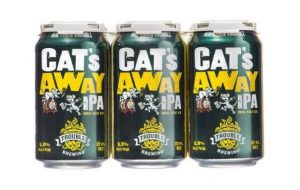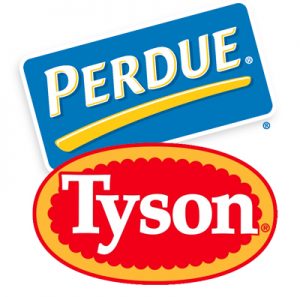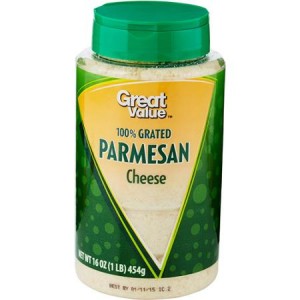 Top Class Action Lawsuits
Top Class Action Lawsuits
Walmart Not on Board with Babies? Well actually moms-to-be. Yes, Walmart is back in the news again…this time, Walmart is facing a potential discrimination class action lawsuit alleging the world’s largest retailer discriminates against pregnant women.
Filed by Talisa Borders and Otisha Woolbright, the complaint claims Wal-Mart forced pregnant workers to perform tasks that employees with similar limitations were excused from.
Specifically, the Walmart pregnancy discrimination lawsuit states: “Under its constellation of policies and practices, Walmart accommodated a large percentage of non-pregnant employees with physical limitations but failed to accommodate a large percentage of pregnant employees with physical limitations arising out of pregnancy.”
The named plaintiffs seek to represent a class consisting of all pregnant women who worked as Wal-Mart employees and were denied accommodations between March 2013 and March 2014, the period during which the defendant issued a revision to its disability accommodation policy that changed how pregnancy was classified.
The lawsuit states that managers at Wal-Mart’s O’Fallon, Illinois, store where Borders worked, refused her request to follow her doctor’s advice and avoid climbing ladders and heavy lifting. Rather, Walmart placed her on unpaid leave, according to the lawsuit. When Borders returned to work, she was not reinstated to her old position in the store pharmacy but was instead assigned to a number of lower-paying positions, the complaint asserts.
Further, according to plaintiff Woolbright, who worked as an associate at a Jacksonville, Florida, location, she was denied permission to follow medical advice and avoid heavy lifting or a transfer to another position until she sustained an on-the-job back injury. Woolbright states she was terminated just three days after requesting information on the company’s childbirth leave policies.
According to the proposed class action, Walmart had a three-tier disability policy, up until March 2014, with employees who sustained on-the-job injuries, pregnant employees and employees with all other disabilities receiving different treatment.
“Wal-Mart’s policies and practices provided that the only modifications or adjustments available to pregnant employees were those that would be both ‘easily achievable’ and ‘which will have no negative impact on the business,’” the complaint states. “Non-pregnant employees with disabilities, on the other hand, were entitled to ‘reasonable accommodations’ so long as the change would not create an ‘undue hardship’ for the company.”
Consequently, Borders was denied ladder and lifting accommodations that were granted to employees with similar medical limitations from on-the-job injuries, and Woolbright’s accommodation was denied until she sustained her on-the-job injury, the lawsuit asserts.
The lawsuit states that while the potential class size is unknown, based on statistics, about 48,000 Wal-Mart employees would have become pregnant during the relevant period, meaning the number of denied accommodations is likely “several thousand.”
The case is Talisa Borders et al. v. Wal-Mart Stores Inc., case number 3:17-cv-00506, in the U.S. District Court for the Southern District of Illinois.
Top Settlements
Airbag Settlements… And so it begins—this week—$553.6 million in settlements were agreed in multi-district litigation (MDL) involving Toyota, Subaru, Mazda and BMW, which will see the automakers pay the sum to end claims brought by plaintiffs over alleged defective Takata airbags. To date, the airbags, which can explode, have been linked with 11 deaths in the US.
According to the terms of the airbag settlements, BMW of North America LLC will pay $131 million, Mazda North American Operations will pay $75,805,050, Subaru of America Inc. will pay $68,262,257 and Toyota Motor Corp., $278,500,000.
Some 15.8 million vehicles currently have the defective airbag inflators installed, and the settlement is meant to expedite their removal. Additionally, compensation will be provided to class members who suffered economic losses as a result from the Takata air bag recall, such as car rentals. Additionally, a customer support program will be initiated that includes an extended warranty.
More than nine million Toyota vehicles, 2.6 million Subaru vehicles, 2.3 million BMW vehicles and 1.7 million Mazda vehicles, are covered by the settlement, according to the plaintiffs.
The airbag settlements also provide compensation to class members for their economic losses resulting from the recall in the form of reimbursement for reasonable out-of-pocket expenses; a possible residual distribution payment of up to $500; requirements to provide rental cars to the most at-risk class members while they wait for their recall remedies; and the provision of a customer support program for repairs and adjustments on the replacement inflators, including an extended warranty.
Further, a new independent outreach program that seeks to dramatically increase recall remedy completion rates will be established. The program will regularly contact class members through direct mail, phone calls, email, internet ads and social media to educate them about the settlement and incentivize them to receive the recall remedy and exercise their rights under this agreement.
Toyota, Subaru, Mazda and BMW are the first automakers to exit the massive MDL, which covers the largest auto recall in US history.
The case is In re: Takata Airbag Products Liability Litigation, case number 1:15-md-02599, in the U.S. District Court for the Southern District of Florida.
J&J to Pay after Mesh Verdict… What’s that expression—three strikes and you’re out? This week, a $20 million verdict was awarded against Johnson & Johnson (J&J) in punitive damages, in the third bellwether Ethicon pelvic mesh injury lawsuit, part of the pelvic mesh mass tort.
The 12-member jury hearing the case in Philadelphia returned the verdict after testimony was given by Plaintiff Margaret “Peggy” Engleman, demonstrating she suffered life-altering injuries when the mesh eroded inside of her. The mesh lawsuit verdict also includes a $2.5 million award for compensatory damages.
According to court documents, Engleman alleged she had underwent surgery to implant Ethicon’s TVT-Secur mesh to help with her stress urinary incontinence. However, just two months later, her doctor discovered erosions in the material. She claimed that the eroding mesh began causing her pain and she was eventually forced to undergo three additional surgeries, under anesthesia, to remove the material. However, portions of the mesh remain in her body and she has developed chronic pain and urinary dysfunction, according to court papers.
Engleman alleged that Ethicon’s TVT-Secur mesh was “defective in design, warnings and instructions” and that J&J released the product to market in full knowledge of the significant risk associated with the mesh implants, specifically, that the mesh would erode inside patients.
Ok – That’s a wrap for this week. See you at the bar!

 Top Class Action Lawsuits
Top Class Action Lawsuits Top Class Action Lawsuits
Top Class Action Lawsuits Top Class Action Lawsuits
Top Class Action Lawsuits Top Class Action Lawsuits
Top Class Action Lawsuits Top Class Action Lawsuits
Top Class Action Lawsuits Top Class Action Lawsuits
Top Class Action Lawsuits

